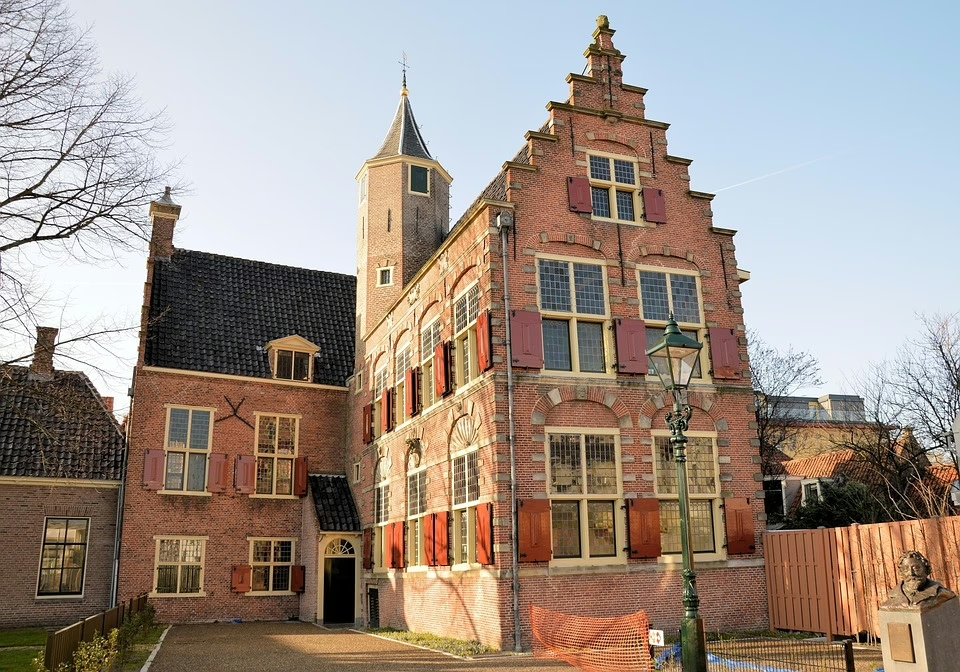National Identity and Historical Narratives: Kosovo and Albania from Medieval Times to Today
Introduction
National identity shapes the social, political, and cultural landscapes of nations. In the case of Kosovo and Albania, complex historical narratives and legacies have significantly influenced their national identities. The relationship between the two regions has evolved over centuries, intertwined with the socio-political developments of the Balkan Peninsula.
The exploration of national identity in Kosovo and Albania offers insights into how historical narratives have been crafted, contested, and reinterpreted. This article delves into the evolution of national identity in Kosovo and Albania from medieval times to contemporary society, examining key historical events, cultural expressions, and the implications for national identity.
Historical Background
Medieval Times: The Formation of Identity
During medieval times, the territories of present-day Kosovo and Albania were part of larger empires and kingdoms. The early medieval period saw the influence of the Byzantine Empire, followed by the emergence of the Serbian Empire in the 12th century. The Battle of Kosovo in 1389 is a pivotal event that is often cited in the historical narratives of both Serbs and Albanians. For Serbs, it represents a heroic struggle against Ottoman domination, while for Albanians, it symbolizes resistance and eventual liberation from foreign rule.
Kosovo and Albania under Ottoman Rule
The Ottoman Empire took control of the Balkans in the 15th century, leading to significant changes in demographics, culture, and religion. Albanian nationalism began to stir in the 19th century in response to the Ottoman decline, with figures like Gjergj Kastrioti Skënderbeu becoming national symbols. For Albanians, Skënderbeu’s resistance against the Ottomans in the 15th century is a significant cornerstone of national identity.
The Ottoman period fostered religious and cultural pluralism, yet it also led to tensions as both Serbs and Albanians vied for recognition and autonomy. The displacement of populations and changes in land ownership further complicated national identities.
The Rise of Nationalism
19th Century National Movements
The 19th century witnessed the emergence of national movements across the Balkans. In Albania, the Albanian League of Prizren (1878) sought to unite Albanian territories and promote the use of the Albanian language. The league played a crucial role in fostering a sense of national identity among Albanians, emphasizing the importance of cultural and linguistic unity.
In Kosovo, the rise of Serbian national identity was fueled by the desire for independence from Ottoman rule. This national revival culminated in the Balkan Wars (1912-1913), which saw both Serbs and Albanians striving for territorial expansion. The wars resulted in the annexation of Kosovo by Serbia and the recognition of Albania as an independent state in 1912.
Aftermath of the Balkan Wars
The aftermath of the Balkan Wars significantly reshaped the historical narratives in the region. The delineation of borders did not alleviate tensions; rather, it intensified them. Albanian territories were divided, with Kosovo remaining under Serbian control. This territorial loss sowed seeds of resentment among Albanians, contributing to a sense of loss and fight for identity.
Serbia’s national narrative framed Kosovo as the historical and cultural heartland of the Serbian nation, particularly after World War I when Kosovo was fully integrated into the Kingdom of Serbs, Croats, and Slovenes. This narrative solidified the idea of Kosovo as a symbol of Serbian pride and resilience.
Twentieth Century Developments
World War I and II: Shifting Alliances and Identities
World War I brought further upheaval and change to the Balkan region. The collapse of empires and the creation of new states led to new possibilities for national identities. However, the interwar years were marked by political instability and ethnic conflicts, particularly between Serbs and Albanians.
World War II exacerbated divisions, with Kosovo experiencing occupation by both Axis and Axis-aligned forces. The Kosovo Albanian collaboration with Italian and German forces created tensions and animosities with Serbs, further entrenching ethnic divisions.
The Formation of Yugoslavia
Post-World War II saw the establishment of Socialist Federal Republic of Yugoslavia, under Josip Broz Tito. Tito’s federal system aimed to balance ethnic identities, including that of Albanians in Kosovo, granting them a degree of autonomy. However, the centralizing policies of the Yugoslav government often clashed with local aspirations for greater autonomy, especially in Kosovo.
Kosovo’s status as an autonomous province led to improvements in social, economic, and educational opportunities for Albanians, fostering a sense of Albanian identity. However, these developments were often viewed with suspicion and resentment by the Serbian population.
The 1980s and the Rise of Ethnic Nationalism
Economic Decline and Ethnic Tensions
The disintegration of Yugoslavia in the late 1980s and early 1990s coincided with economic decline and rising ethnic nationalism. In Kosovo, Albanian political leaders began advocating for greater rights and autonomy, culminating in a shadow governance system parallel to the Serbian state.
The Serbian government, under Slobodan Milošević, adopted increasingly repressive measures against the Albanian population. This exacerbated ethnic tensions and led to widespread protests by Albanians, seeking self-determination and recognition.
The Kosovo War
The outbreak of the Kosovo War in 1998 marked a turning point for both Kosovo and Albania. The conflict, characterized by brutal ethnic cleansing and human rights abuses against Albanians, prompted international intervention. The war ultimately ended with Kosovo being placed under United Nations administration.
The aftermath of the war further complicated national identities. After the conflict, Kosovo declared independence from Serbia in 2008. This declaration was met with mixed reactions; while Albania recognized Kosovo’s sovereignty immediately, multiple countries, including Serbia, contested its legitimacy.
Contemporary Reflections on National Identity
National Identity in Post-War Kosovo and Albania
In the post-war context, national identity in Kosovo and Albania has been shaped by the legacies of conflict, the aspirations for statehood, and the push for European integration. Kosovo’s independence has contributed to national pride among Albanians, establishing a formal basis for identity alongside historical narratives.
However, the legacy of conflict continues to impact the national identities of both Kosovo and Albania. Albanian nationalistic narratives often emphasize unity and common history, while Serbia’s narratives frame Kosovo as integral to its national identity.
Cultural Expressions and Historical Narratives
Cultural expressions, including literature, art, and music, play a crucial role in shaping and reflecting national identities. In both Kosovo and Albania, these artistic forms have been harnessed to articulate narratives of resilience, pride, and national unity.
In contemporary Albania, literature and media often celebrate Albanian history, identity, and the struggle for freedom. In Kosovo, artists and cultural producers engage with the complexities of identity and the post-war experience, exploring themes of loss, memory, and reconciliation.
Challenges and Future Directions
Navigating National Identities Amidst Globalization
In the context of globalization, Kosovo and Albania face challenges in reconciling national identities with the pressures of modernity. Economic migration, diaspora narratives, and the impact of the European Union’s policies present both challenges and opportunities for fostering a cohesive national identity.
Both nations are in the process of negotiating their places within a broader European context. There is a growing discourse around the importance of historical reconciliation, and efforts towards dialogue and cooperation aimed at fostering regional stability are underway.
The Role of Education in Shaping Identities
Education plays a crucial role in shaping national identities, particularly in multicultural and post-conflict societies. In Kosovo and Albania, educational curricula often reflect national narratives, which can reinforce divisions or promote understanding.
Developing educational programs that encourage critical engagement with history and promote multicultural perspectives can significantly contribute to fostering a more inclusive national identity, moving beyond historical animosities and toward a shared future.
Conclusion
The national identities of Kosovo and Albania are deeply rooted in their historical narratives, shaped by centuries of conflict, aspiration, and resilience. While these identities have been constructed through various historical events, the ongoing processes of defining and redefining what it means to be Albanian or Kosovo Albanian remain vital.
In a complex world that continually negotiates identities, the experiences of Kosovo and Albania highlight the enduring impact of history on national identity. Their journeys reflect the challenges and aspirations of nations striving for recognition, sovereignty, and belonging in an increasingly interconnected global landscape.
References
- [Modern_footnote_source]
- [Modern_footnote_source]
- [Modern_footnote_source]
- [Modern_footnote_source]
- [Modern_footnote_source]
- [Modern_footnote_source]
- [Modern_footnote_source]
- [Modern_footnote_source]
- [Modern_footnote_source]
- [Modern_footnote_source]
This article serves as a comprehensive exploration of the intricate relationship between national identity and historical narratives in Kosovo and Albania, tracing their legacies from medieval times to the 21st century. Each section highlights significant historical events and cultural expressions that contribute to contemporary understandings of national identity.
























Add Comment